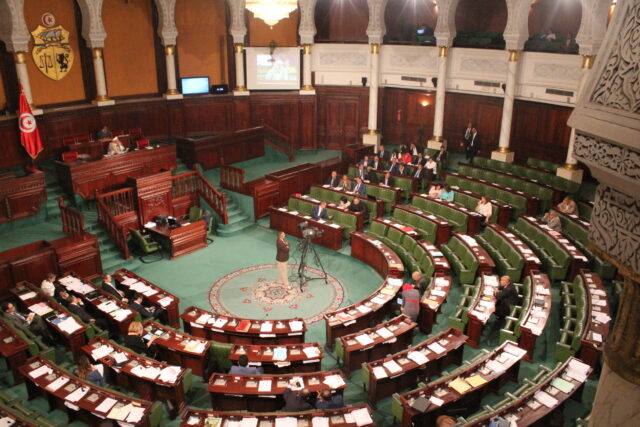Tunisian President Kais Saied announced on state TV that he is dissolving the country’s parliament. He had earlier suspended the Parliament in July last year. This highlights his consolidation of power into his hands.
In his televised address on 30 March, the President said: “Today, at this historic moment, I announce the dissolution of the Assembly of Representatives of the people, to preserve the state and its institutions.”
He made the announcement at a meeting of the National Security Council, hours after parliamentarians held a plenary session online and voted through a bill against his “exceptional measures”.
According to reports in local media, following the televised address by the President, Justice minister Leila Jeffal asked the Attorney General to initiate a judicial investigation against members of a suspended parliament. They would be charged with “conspiring against state security”, media reports say.
In his address, the President criticized parliament’s move as a “coup attempt.” He also added those who are responsible had “betrayed” the nation.
On 30 March, the Tunisian parliamentarians voted to repeal presidential decrees suspending their chamber and giving Kais Saied near-total power. This was seen as open defiance; however, the President reacted that the meeting of the Parliamentarians was illegal.
The President, who is a former law professor, was elected in 2019 when there was popular anger against the political elite. In July 2021 sacked the government and suspended the assembly. He also took a wide range of power into his hands.
President Saied consolidating his powers went to legislate by decree. He also took control of the judiciary, which drew a lot of criticism.
It may be noted that Tunisia was the first country where popular uprisings began in 2011, which is popularly called Arab Springs.
While the supporters of Saied insist that his moves have brought an end to the deadlock between different government departments which resulted in delays. However, his critics say he has driven the country towards autocracy. The country is also undergoing an economic crisis.
Western donor countries have urged the President to bring back democracy and abide by constitutional provisions.
The 2014 constitution says if the Parliament is dissolved then an election should be held immediately. Political observers believe that the President should call for elections in the next three months.









